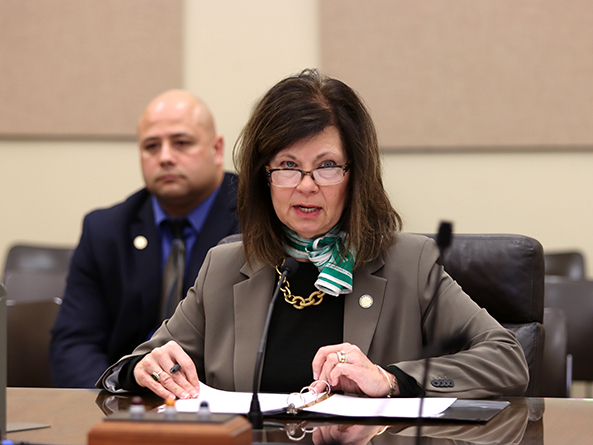Bill would change certain firefighter retirement plans
The Nebraska Retirement Systems Committee heard testimony March 15 on a bill that would alter what is included in the term “salary” related to retirement plans for firefighters in first class cities in Nebraska.

Nebraska law classifies cities based on population. First class cities are those with a population between 5,001 and 100,000.
LB221, sponsored by Sumner Sen. Teresa Ibach, would align the definition of salary for firefighters and police in first class cities as all amounts paid by the employing city for personal services. Currently, salary for those firefighters is defined as the base rate of pay, excluding overtime, callback pay, clothing allowances and other such benefits.
Ibach said the bill is part of a larger, ongoing negotiation between firefighters and city governments and was introduced to contribute to that process.
Darren Garrean, representing the Nebraska Professional Fire Fighters Association, testified in support of the proposal. He said retirement plans for firefighters in first class cities are in “crisis” and the definition of salary is one of the things hindering firefighters from accumulating sufficient retirement funds.
Dave Wordekemper, president of the Fremont Fire Fighters Local 1015 of the International Association of Fire Fighters, also testified in support of LB221. First class city firefighters moved from a defined benefit to a defined contribution plan in 1984, which put the retirement liability “on the backs of the firefighters,” he said, and the current system does not provide an adequate retirement.
“I am not aware of any other hourly employee who works overtime or gets paid extra for time worked above their normal hours [who] does not have a larger contribution put toward their retirement, including Social Security or a 401K benefit,” Worderkemper said. “After serving their communities in a physically and mentally challenging job, most firefighters — if not all — have to seek further employment because they simply can’t afford to retire.”
Representing the League of Nebraska Municipalities, Lynn Rex opposed the bill. One of the reasons that firefighters find themselves behind in retirement savings, she said, is because individuals have not contributed additional funds to counterbalance the fact that they are not eligible for Social Security.
She said negotiations continue between union representatives and city administrators in an attempt to find a salary definition that will satisfy all parties.
“We really appreciate the work of the firefighters and their team to negotiate with us to see if we can’t reach some type of accord,” Rex said.
The committee took no immediate action on LB221.


